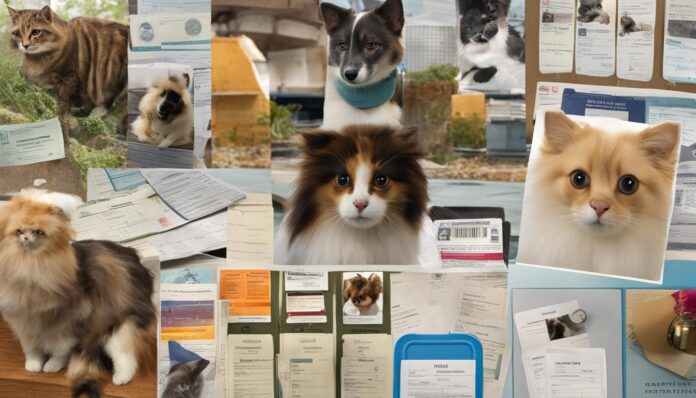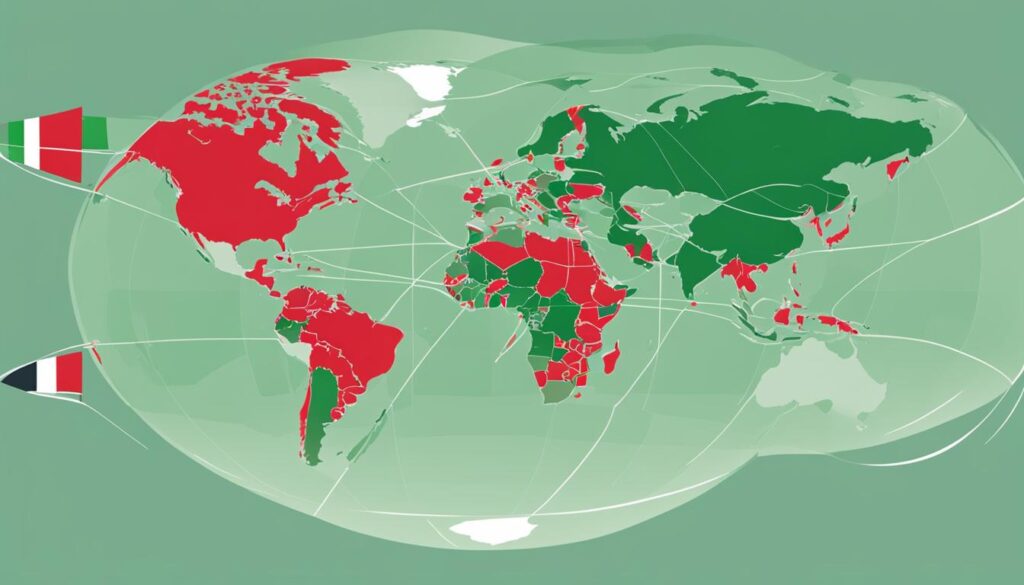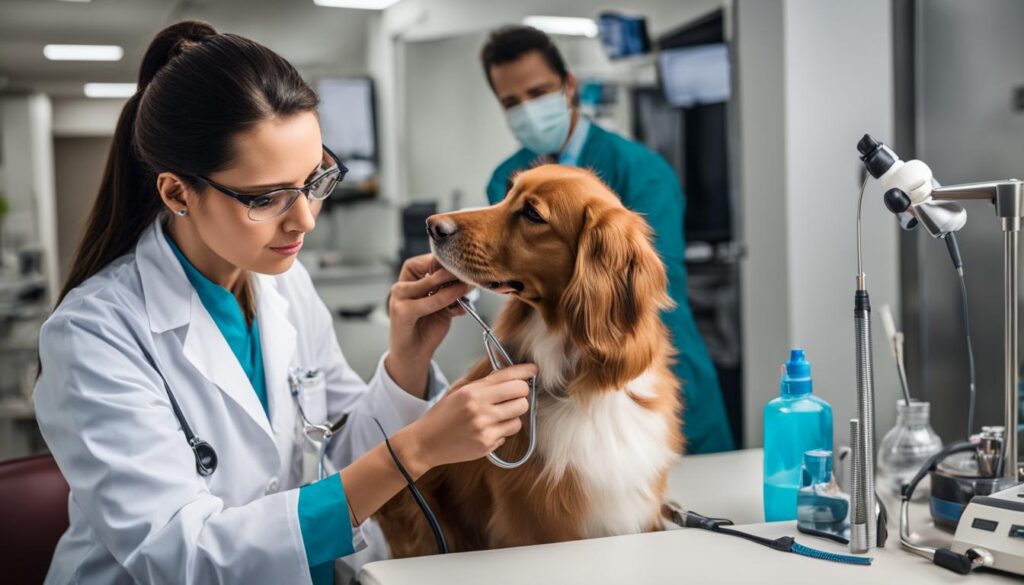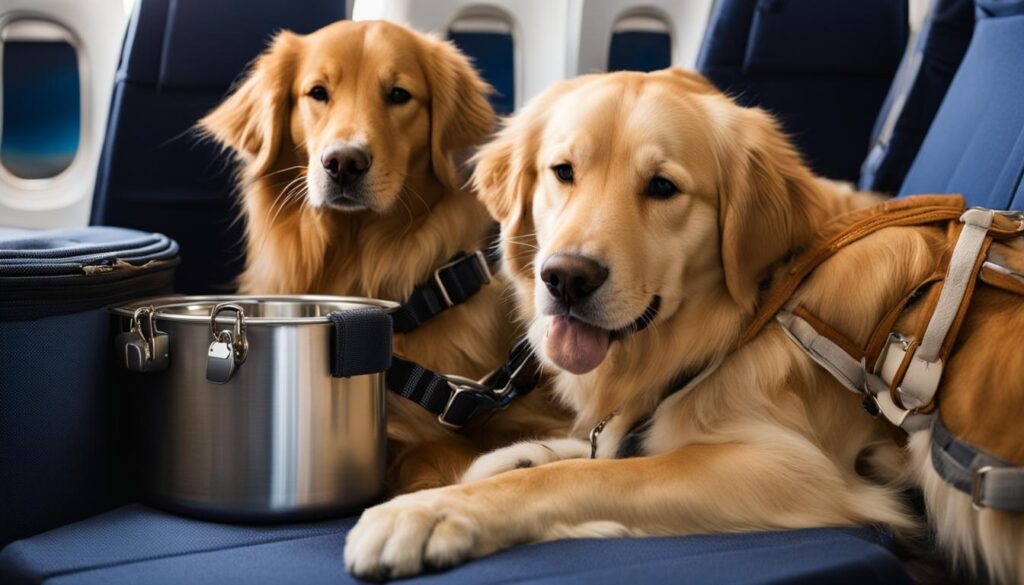If you are planning to travel internationally with your beloved pet, it is essential to have a clear understanding of international pet travel requirements, pet travel regulations, and pet travel documents. This guide will provide you with comprehensive information that you need to know before embarking on your journey with your furry friend.
Understanding Pet Travel Regulations
Traveling with your pet internationally requires preparation and knowledge of pet travel regulations, which vary from country to country. These regulations are in place to ensure that both pets and humans are safe during travel and to prevent the spread of diseases across borders. By familiarizing yourself with these regulations, you can avoid unexpected delays and ensure a smooth journey for your furry friend.
One of the most important factors to consider when traveling with pets is the restricted breeds policy of the destination country. Some countries may have strict regulations regarding certain breeds or even ban them altogether. For instance, countries like Australia, New Zealand, and the United Kingdom have strict quarantine requirements for pets to prevent the spread of diseases. Make sure to research the destination country’s policies and regulations regarding pet travel before embarking on your journey.
In addition to breed restrictions, many countries have specific requirements for vaccinations and health certificates. Most countries require proof of current rabies vaccinations, and some may require additional vaccinations depending on the pet’s age and medical history. Before traveling, make sure to visit your veterinarian to obtain the necessary documentation and ensure that your pet is up-to-date on all necessary vaccinations.
It is also essential to note that traveling with pets may be restricted or prohibited altogether during certain seasons due to local regulations. For example, some countries may have an embargo on the transport of pets during extreme weather conditions.
Furthermore, some airlines may have specific regulations surrounding pet travel, including the size of the carrier, the type of pet that can travel in the cabin, and minimum age requirements. Make sure to research airline policies ahead of time to ensure that your pet meets all their requirements.
Overall, by understanding and adhering to pet travel regulations, you can ensure a safe and comfortable journey for your pet. Be sure to perform thorough research, prepare the necessary documents, and comply with all relevant restrictions to ensure a stress-free experience for both you and your furry friend.
Important Pet Travel Documents
When traveling with your furry friend, having the right pet travel documents is crucial. These documents will not only keep your pet safe and healthy during the journey, but also ensure that you comply with pet travel guidelines set by different countries. Below are some of the important pet travel documents you should have:
| Document | Purpose | Remarks |
|---|---|---|
| Passport | Identification and proof of vaccination | Most countries require one, valid for at least six months beyond completion of your trip. |
| Health Certificate | Proof of good health | May need to be obtained within a few days before travel. |
| Vaccination Records | Proof of updated vaccinations and treatment against parasites | Some countries may require additional vaccinations, such as rabies. |
| Import/Export Permits | Permission to bring in or take out pets | Check requirements before travel; some countries may not allow certain breeds or species. |
| Microchip Information | Identification and contact details | Make sure the microchip is ISO-compatible and updated with your current contact information. |
It’s important to note that traveling with pets may require additional documentation and different requirements depending on the destination country. Be sure to research the pet travel guidelines for the specific country you are planning to visit well in advance of your trip.
Researching Pet-Friendly Airlines
When it comes to traveling with your furry friend, choosing the right airline is vital. Here are a few things to consider when researching pet-friendly airlines:
Airline Policies
Before booking your tickets, take some time to research the airline’s policies regarding pets. Some airlines only allow pets in the cargo hold, while others permit them in the cabin.
It’s essential to note that pet travel policies vary widely among airlines, so it’s always best to consult with the airline directly to ensure that you’re choosing the right one for your pet.
Cabin vs. Cargo Options
If you’re traveling with a small pet, you may be able to bring them with you in the cabin. However, larger dogs may need to be transported in the cargo hold.
It’s essential to understand the risks involved in placing your pet in cargo. Ensure that the airline has appropriate measures in place to ensure your pet’s safety and comfort during the flight.
Safety Considerations
When traveling with your pet, safety should be your top priority. Ensure that the airline provides adequate ventilation and temperature control in cargo during the flight. Additionally, some airlines offer pet relief areas to keep your furry friend comfortable during breaks in long flights.
“Before booking your tickets, take some time to research the airline’s policies regarding pets.”
By taking the time to do some research and understanding the policies and options available, you can ensure a stress-free journey for you and your pet.
Pre-Travel Health Check-ups for Pets
Before hitting the road, it’s crucial to prepare your furry friend for the journey ahead by having a pre-travel health check-up with your veterinarian. You want to ensure that your pet is healthy and fit for travel. Below are some pet travel guidelines to consider:
Vaccinations:
Depending on the country you’re traveling to, your pet may require certain vaccinations. Your veterinarian can recommend which vaccines your pet needs. It’s essential to have your pet’s vaccination records with you when traveling.
Microchipping:
Microchipping your pet is recommended to make sure they can be identified if they get lost during travel. Most airlines require your pet to be microchipped, and it’s a useful precaution if your pet gets lost in an unfamiliar location.
Health Certifications:
Certain countries may require health certifications for your pet to enter. Your veterinarian can provide these certifications, and it’s essential to carry them with your pet’s other documents.
By following these pet travel restrictions, you can ensure the safety and welfare of your pet while traveling. Don’t forget to have an open conversation with your vet about any concerns or precautions before the journey.
Tips for Safe Pet Travel
Traveling with your furry friend can be a fun and exciting adventure. However, it’s important to ensure their safety throughout the journey. Here are some tips to help you make sure your pet has a safe and stress-free travel experience:
Choose the Right Transport Carrier
When traveling with pets, it’s important to choose a transport carrier that meets pet travel guidelines. Look for carriers that are well-ventilated, secure, and allow for adequate movement. Try to choose a carrier that your pet is comfortable in and familiar with. If you’re traveling by car, make sure to secure the carrier with a seatbelt or other restraint to prevent injury in case of an accident.
Acclimation Training
Before you travel, take some time to help your pet become accustomed to the carrier. Gradually introduce them to it, providing treats and positive reinforcement. This will help them associate the carrier with positive experiences and lessen their anxiety during travel.
Handling Pet Anxiety
Some pets may experience anxiety during travel. To help calm your pet, try using calming sprays or pheromone collars. Talk to your vet about medication options if your pet has severe anxiety. Providing familiar items such as blankets or toys can also help them feel more comfortable.
By following these pet travel restrictions, guidelines, and tips, you can help ensure a safe and enjoyable trip for both you and your furry friend.
Understanding Animal Import/Export Laws
Traveling with your beloved pet internationally requires careful planning and preparation, taking into consideration the specific regulations set by different countries. Understanding the animal import/export laws is essential to ensure a smooth and stress-free travel experience.
When traveling with pets, it is important to note that most countries have their own regulations regarding the import/export of animals. These regulations are designed to prevent the spread of diseases and ensure the safety of both the animals and humans. Failure to comply with these regulations can result in serious consequences, such as quarantine, fines, or even the denial of entry to the country.
Before traveling, it is recommended to research the specific import/export laws of the country you are visiting. These laws may include requirements for pet health certificates, vaccinations, or microchipping. Some countries also place restrictions on certain breeds or limit the number of pets you can bring.
| Country | Import/Export Regulations |
|---|---|
| United States | Require health certificates and proof of rabies vaccination for dogs and cats. Some breeds may be restricted or require additional documentation. |
| Canada | Require a veterinary certificate of health and proof of rabies vaccination for dogs and cats. Certain dog breeds may be restricted. |
| United Kingdom | Require a pet passport, microchip, rabies vaccination, and tapeworm treatment for dogs. Other vaccinations may also be required. |
To comply with these regulations, it is important to have all the necessary documents in order before traveling. This can include health certificates, vaccination records, and import/export permits.
Understanding the animal import/export laws is crucial for traveling with your pet internationally. Ensure you have done adequate research and have all the necessary documents in place to avoid any complications during your travels.
Pet Travel Restrictions by Country
When traveling with your furry friend internationally, it’s important to be aware of the pet travel restrictions imposed by different countries. Below is an overview of commonly visited destinations and their specific requirements:
| Country | Pet Travel Restrictions |
|---|---|
| United States | Pets must have a health certificate and proof of rabies vaccination. Some states have additional requirements such as microchipping and pet insurance. |
| Canada | Pets must have a health certificate and proof of rabies vaccination. |
| Mexico | Pets must have a health certificate and proof of rabies vaccination. Additional requirements may vary by state. |
| United Kingdom | Pets must be microchipped, vaccinated against rabies, and have a pet passport. Dogs must also be treated for tapeworm before entering the UK. |
| France | Pets must have a health certificate, proof of rabies vaccination, and a microchip. |
It’s essential to research the pet travel restrictions and regulations of your destination country well in advance of your trip. Failure to comply with these requirements could result in your pet being denied entry or quarantined upon arrival.
Next up, we will cover pet travel permits and quarantine requirements.
Pet Travel Permits and Quarantine
When traveling with your pet internationally, it is vital to understand the pet travel permits and quarantine requirements of the country you are visiting. Some countries may put several restrictions on animals entering their borders, while others may only require a permit or health certificate.
The pet travel guidelines for obtaining permits will vary from country to country, and it is essential to research thoroughly the specific requirements of your destination before starting the process. Generally, the process involves submitting your pet’s vaccination records, a health certificate, and other supporting documentation.
If you’re planning to visit a country that mandates quarantine for pets, you will need to factor in the quarantine period when making travel arrangements. This period can range from a few days to several weeks, depending on the country’s regulations.
Remember that requirements and regulations are subject to change, and it is important to keep yourself informed of any updates or changes. By following the pet travel guidelines and obtaining pet travel permits and adhering to quarantine guidelines, you can ensure hassle-free travel with your furry friend.
Packing Essentials for Pet Travel
When traveling with your furry friend, it’s essential to pack the necessary items to ensure a comfortable and safe journey. Here’s a handy pet travel checklist that will help you prepare.
Food and Water
Bring enough food and water for the journey, and a little extra in case of delays. Pack a collapsible bowl and water bottle for easy hydration on the go.
Medication and Documents
Ensure you pack required medication and any necessary documents, such as vaccination records and health certificates. Keep these in a waterproof container to protect them during transit.
Comfort Items
Keep your pet comfortable with their favorite bedding, toys, and treats. Familiar items can help alleviate stress and anxiety during travel.
Transport Carriers
Choose a suitable transport carrier that is comfortable and safe for your pet. The carrier should be spacious enough for your pet to comfortably move around and stretch their legs on a long journey.
Cleaning Supplies
Accidents can sometimes happen during pet travel, so it’s essential to bring cleaning supplies. Pack puppy pads, odor neutralizer, and a few towels to clean up any mess.
Pet-Friendly Accommodation Options
When traveling internationally with your furry companion, finding suitable pet-friendly accommodation can be a challenge. However, many hotels, rentals, and establishments welcome pets, making your travel experience stress-free and enjoyable.
One of the best resources for finding pet-friendly hotels is TripAdvisor. The website provides traveler reviews and ratings, making it easy to find hotels that cater to pets. Additionally, many hotel chains such as Marriott and Hilton have pet-friendly policies, allowing pets to stay with their owners for an additional fee.
If you prefer to rent a vacation home or apartment, Airbnb is a great option. Many rentals allow pets and even have specific amenities catering to pets, such as dog beds and toys.
When searching for pet-friendly establishments, keep in mind that some countries may have specific regulations regarding pets in hotels. It’s essential to research the pet travel guidelines and international pet travel requirements for your destination before making reservations.
Pet-Friendly Accommodation Options
| Accommodation Option | Pros | Cons |
|---|---|---|
| Hotels | Plenty of options, often have pet-friendly policies | May be more expensive than other lodging options |
| Vacation Rentals | More home-like feel, often allow pets | May not be as available as hotels |
| Camping | Opportunity for outdoor activities with your pet, lower cost | May not provide as many amenities as hotels, not available in all locations |
| Pet-Friendly Apartments | May offer specific amenities for pets such as dog beds and toys | May have breed or size restrictions |
As you can see, there are several pet-friendly accommodation options available when traveling internationally. By doing your research and planning ahead, you can find suitable lodging that accommodates both you and your furry companion!
Conclusion
Congratulations! You are now equipped with the essential knowledge for traveling internationally with your beloved pet. Remember to research the pet travel regulations and requirements of your destination country and obtain the necessary documents and permits. Make sure your pet is up-to-date on all necessary vaccinations and health checks. Consider choosing a pet-friendly airline and packing all the necessary essentials.
With proper planning and preparation, you can make your journey enjoyable and stress-free for both you and your furry companion. Remember to always prioritize your pet’s comfort and safety when traveling. Bon voyage!

















































